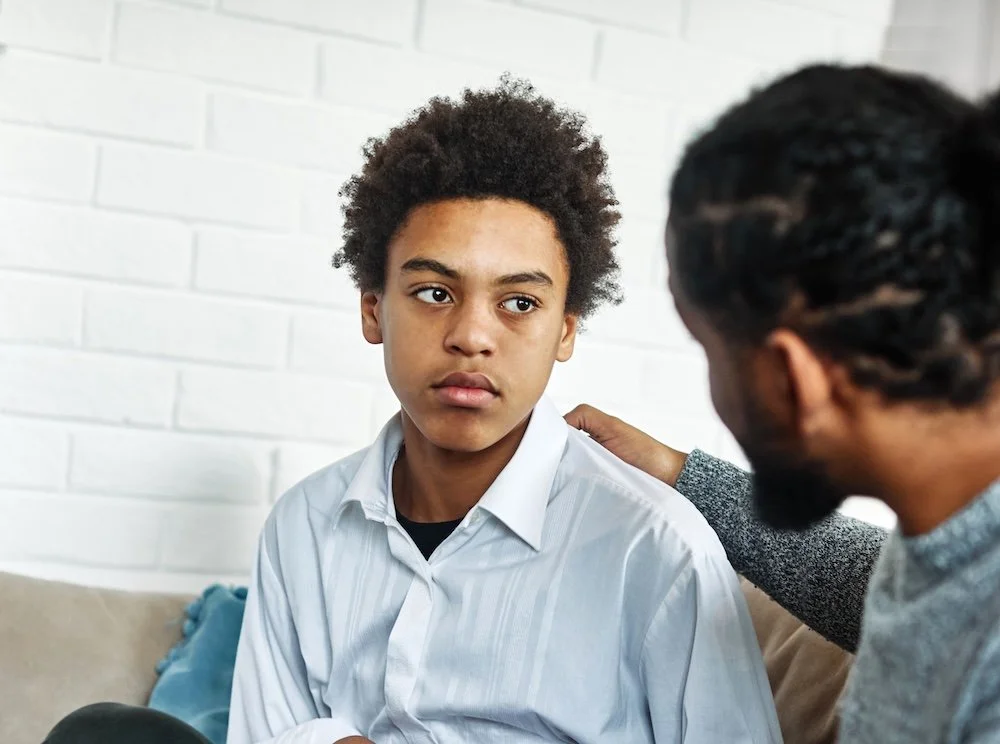Tips for Talking to Your Kids About Your Divorce
Children often have to navigate a storm of emotions when they find out their parents are getting a divorce. They can feel confused, afraid, overwhelmed, guilty, sad, anxious—or all of these and more, in varying combinations.
We’re often asked for guidance in our family law practice about how to approach this incredibly delicate conversation. (Cautionary note: we are not mental health professionals.) However, over many years, we have heard from mental health professionals, judges, magistrates, and guardians about how to explain what is happening in a way that serves your children’s best interests.
While there’s no perfect script, there are compassionate and thoughtful ways to help your children feel safe, supported, and deeply loved through this difficult transition.
Get professional advice.
Contact your pediatrician or school counselor for a referral to a therapist. Both parents should then meet with the therapist to discuss how to talk to your child about the divorce in a way that is age-appropriate, supportive, and reassuring.
Present a united front (if at all possible).
If both parents are willing to speak to the children together, do. It sends the powerful message that even though the marriage is ending, both parents remain committed to parenting them.
Keep the message simple and consistent.
Timing
Have the conversation close to the time of a physical separation. If too much time passes between telling them what’s happening and when you actually separate, they may be confused or think you’ve changed your mind.
Core Messages
Kids process divorce differently at different ages. Young children often need short, clear explanations and lots of reassurance. Tweens and teens may ask more complex questions or need time alone to digest what’s happening. Whatever their age, try to reinforce these core messages:
“We both love you.”
“This isn’t your fault.”
“We’re still your parents, and we’re here for you.”
Flexibility
Be open and willing to let them ask questions and answer calmly, especially when it comes to their day-to-day life.
Avoid blame.
It’s best to avoid discussing any reasons for the divorce—even if your kids ask why it’s happening. Inevitably, this discussion can lead to blame, and it’s important to communicate that it’s not the other parent’s “fault.”
Key Phrases
“It’s an adult decision.”
“We will both continue to be fully in your lives.”
“This has nothing to do with anything you did.”
Instead, focus on what they need to know: “We’ve decided not to live together anymore, but we’re still your parents, and nothing will change how much we love you.”
Avoid asking your kids to choose sides, discussing details of the case, or using them as messengers or go-betweens. Protecting your child from adult stress is one of the most loving things you can do right now.
Final Thought: It’s an ongoing conversation.
As time passes, questions will come up, emotions may shift, and new phases will unfold. Be patient. Keep the lines of communication open and let your child know they can come to you anytime—and that you’ll be there to listen. This isn’t a one-time talk.
If you’re going through a divorce in Ohio and want guidance that centers on your children’s emotional and legal well-being, our team is here to help. We’re committed to helping families navigate change with empathy, strength, and thoughtful support.
Let’s put your child’s heart first—together.

